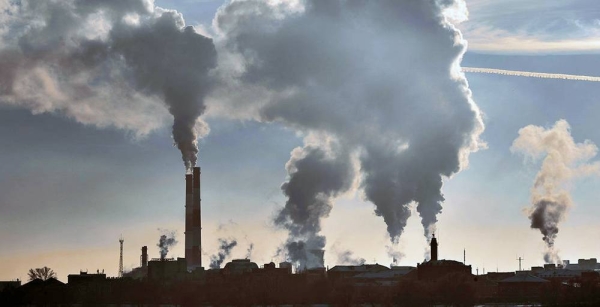Table of Contents
Global warming refers to the gradual increase in the average temperature of the Earth’s atmosphere and oceans, primarily due to the burning of fossil fuels such as coal, oil, and natural gas, which releases large amounts of carbon dioxide and other greenhouse gases into the atmosphere. These gases trap heat from the sun, causing the planet’s temperature to rise. This can lead to a range of negative consequences, including more frequent and severe heat waves, storms, and droughts, as well as rising sea levels, which can flood coastal areas and displace millions of people. To address this issue, many countries and organizations are working to reduce their greenhouse gas emissions and transition to cleaner forms of energy.
Effects of global warming:
The effects of global warming can be wide-ranging and significant. Some of the most notable effects include:
Rising sea levels:
As the Earth’s temperature increases, the polar ice caps and glaciers melt, causing sea levels to rise. This can lead to flooding in coastal areas and small islands, and can also increase the severity of storm surges.
Extreme weather events:
Global warming can lead to more frequent and severe heat waves, droughts, and storms. This can cause damage to crops and infrastructure, and can also lead to forest fires.
Loss of biodiversity:
As the Earth’s temperature rises, many plants and animals are unable to adapt to the changing conditions and are at risk of extinction.
Ocean acidification:
The increased levels of carbon dioxide in the atmosphere are also causing the oceans to become more acidic, which can harm marine life and disrupt entire ocean ecosystems.
Public health risks:
Rising temperatures can lead to an increase in the spread of diseases, such as Lyme disease, and can also exacerbate air pollution, which can lead to respiratory problems.
Economic impacts:

The effects of global warming can also have significant economic impacts, such as decreased agricultural productivity, damage to infrastructure, and increased costs for cooling and disaster management.
Many of these effects are interconnected, so one event in one area can cause ripple effects in other areas. And some of the effects are irreversible in human lifetime.
What we can do to stop global warming from taking over our earth
There are several actions that individuals, businesses, and governments can take to reduce the effects of global warming and slow the rate of temperature increase. Some of the most effective solutions include:
Reducing greenhouse gas emissions:
The primary cause of global warming is the release of greenhouse gases, primarily carbon dioxide, into the atmosphere. To slow the rate of global warming, it is essential to reduce these emissions. This can be done by transitioning to cleaner forms of energy, such as solar, wind, and hydropower, and by increasing energy efficiency.
Planting Trees and preserving the forest:
Trees absorb carbon dioxide and release oxygen, so planting more trees can help to remove some of the excess carbon dioxide from the atmosphere. In addition, preserving forests can help to keep carbon stored in trees and other plants, rather than releasing it into the atmosphere.
Encourage recycling and reducing waste:
Landfills are one of the largest sources of methane, a potent greenhouse gas. Reducing the amount of waste sent to landfills can help to decrease the amount of methane released into the atmosphere.
Eating less meat:
Animal agriculture is a significant contributor to greenhouse gas emissions, so eating less meat and dairy products can help to reduce these emissions.
Supporting clean energy:
Investing in clean energy technologies and supporting policies that encourage the transition to clean energy can help to reduce greenhouse gas emissions and slow the rate of global warming.
Making energy-efficient choices:
Simple choices like using energy-efficient light bulbs, appliances, and vehicles can also make a big difference in reducing greenhouse gas emissions.
Educating others:
Spreading awareness about the causes and consequences of global warming can help to encourage others to take action as well.
It’s important to note that slowing global warming will require collective action and cooperation. Every individual can make a difference, but governments and businesses have a vital role to play in creating policies and infrastructure to make it easier for people to reduce their carbon footprint.
Favorable impacts of global warming
There are few, if any, benefits of global warming. The overwhelming majority of scientific evidence suggests that the impacts of global warming will be overwhelmingly negative, causing severe disruptions to natural systems, human societies, and economies. Some potential benefits that have been proposed include:
- Increased agricultural productivity in some regions due to longer growing seasons and higher levels of carbon dioxide in the atmosphere, which can act as a fertilizer for plants.
- Reduced energy costs for heating in some regions.
- Access to previously inaccessible natural resources such as oil and gas in the Arctic.
However, it’s important to note that these benefits are outweighed by the numerous negative consequences of global warming, such as sea level rise, more frequent and severe heat waves, more intense storms, and increased risk of wildfires and drought. Additionally, these benefits are likely to be short-lived and will likely be offset by the negative impacts on food security, human health, and biodiversity.




